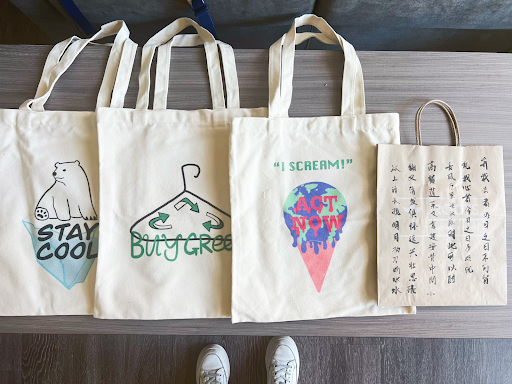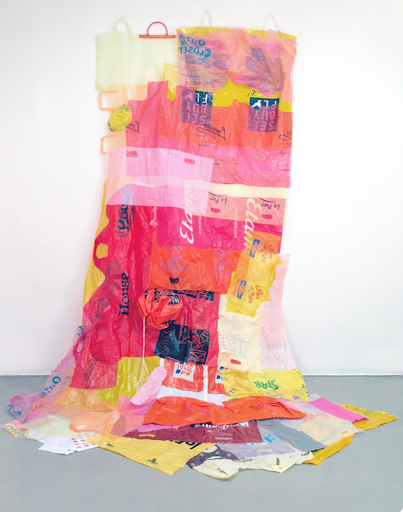Reuse Your Bag! Small Acts Add Up
Hey guys! My name is Yirui, a rising Third Year at the University of Virginia and a Corporate Sustainability Intern at C3. As I played the Climate Action Summer Bingo, I discovered an alarming story about plastics as well as some fun tips to go sustainable with them. Interested? Read along!
Climate change is huge, but tackling the challenge doesn’t have to start big. In an environmentally unfriendly system, we consumers can all make an impact by acting small.
(My favorite 4 reusable bags)
The journey of single-use plastic bags
Plastic is a word that originally meant “pliable and easily shaped.” It only recently became a name for a category of materials called polymers.
Though the first plastic was invented in 1907, it wasn’t until the 1960s that plastic swept the market. Because they are cheap, versatile, sanitary, and easy to manufacture into a variety of forms, it became the default choice for customers at the grocery counters. Nevertheless, the cheap price of plastics has never accounted for their environmental costs.
Most plastics do not degrade. Instead, they slowly fragment into smaller particles, referred to as microplastics. These particles have profoundly detrimental consequences for ecosystems and the environment, but also for the economy and human health.
Plastics have been found in the stomach contents of numerous organisms, including earthworms, birds, turtles, dolphins and whales. Smaller particles may be even more pervasive, as these may be ingested by organisms that are at the basis of different food webs, which in turn carry harmful microplastics into human bodies.
Photo courtesy Surfrider Foundation.
What’s even more frustrating…
According to a study by the English Environmental Agency, about 60% of the environmental impacts of carrier bags – whether it’s made of plastic, paper, or cloth – occur at the resource extraction and production stages. In other words, 60% of environmental impacts have occurred before we even put our groceries into bags.
Not to mention the end use. Plastic bags by and large do not get recycled. Ready for this? This year, Five Trillion plastic bags will be consumed worldwide, equivalent to 160,000 a second! Among them, less than 1 percent will be recycled.
Get the most use out of reusable bags!
When my German friend exchanged at UVA last year, she was shocked to see Americans wrapping two or three layers of plastic bags around their groceries which all ended up in the landfills. Under her influence, I started to bring my own reusable bags to grocery stores. Remembering to bring my own bags was not easy to begin with, but once I adapted, it became second nature.
I also figured out some innovative ways to reuse my takeaway bags from Roots:
Practice Chinese calligraphy (and then keep using them!)
Make storage boxes
Furthermore, according to research results from a UK team, to be more sustainable than single-use plastic bags in climate impacts the following should occur:
Paper bags should be used at least 4 times;
Polyethylene bags should be used at least 4 times;
Cotton bags should be used at least 131 times.
Therefore, simply shifting from plastic bags to reusable bags is not enough. The key is to extend the life of each bag by reusing it.
Four things you can do!
1- If you have your own reusable bag, bring it.
2- If you are offered single-use bags from the counter, refuse it.
3- If you already have a stack of plastic bags, collect them. Reuse them.
4- Finally, find ways to redesign them to encourage yourself to reuse them. Click this link for more inspiration!
To sum up: reduce, reuse, and recycle. Hope that helps!
–Yirui





